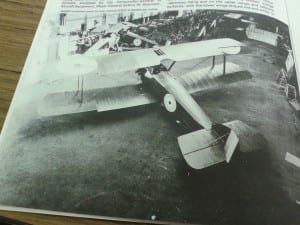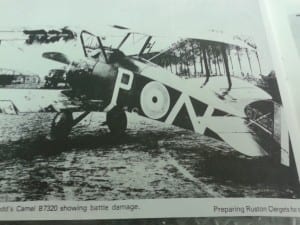Since analysing the design and information associated with World War 1 aircraft based in Lincolnshire at Lincoln Archives, my ideas ideas have developed further. . My first obstacle was to recreate the aircraft . I thought about functioning this through projections, or even through small scale models. However, the Lincoln based Beechly Brothers tale, which the group also explored , opened up the theme to me of loss. Examining some of the letters I learnt that every soldier who died in battle was a son of a mother , he left behind. Therefore, this took me to explore the notion of a young person creating a plane; and a child may portray this through a paper aeroplane. I proposed that children could design and write their names on the planes. Therefore, an element of the Grandstand’s history is embedded into today’s Grandstand. It afterall is true that “Everyone’s either lost somebody or knows somebody who has” ((Barker, 2009, p134)).
Photos of the aircraft design I am trying to replicate
An advancement of this idea though came when studying the letters, and linking the connection to sending letters home and hopefully sending the aircraft and it’s airmen home too. Consequently, each of my paper aeroplanes will be made out of soldiers letters home. I, furthermore thought it would be such a hands on experience for the audience to make the planes themselves. By employing this mode of performance the audience will get a real sense of “ a nostalgia for a public domain in dynamic dialogue with it’s inhabitants……A restoration of the absent present” ((Pearson, 2010, p46)).
Works Cited
Pearson, Mike (2010) Site Specific Performance, London, Palgrave Macmillan
Barker, Pat (1991) Regeneration,Middlesex: Penguin Books

